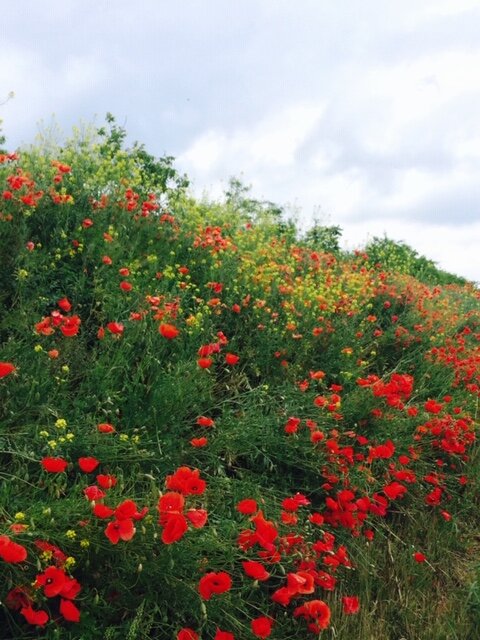Summer Eco Tips
Keep your home cool… the natural way. Open the windows at night, when it’s cooler, and close them during the day. Keep your blinds closed to keep the sunshine and heat out, and try using fans instead of your AC.
Enjoy native plants in your garden. They’ll need less water, because they have adapted to the local climate. Also, water in the evening or early morning. At that time, the sun is not as hot, and the humidity will stay in the soil longer. And, best of all, capture your rain water and use that for your garden. It’s easy and fun!
Take the train or drive, instead of taking a flight. This year, it’s better than ever to stay close to home. Try taking the train or even driving to your next vacation spot. Trains consume significantly less energy than airplanes, and they can make for a super fun journey, as well.
Green your grilling by using propane (which burns cleanly), instead of charcoal. Also, try more veggies and see if you can stay away from beef. Cattle is a huge polluter and – after all – veggies are healthy and yummy.
Did you know?
According to the Energy Department, air conditioners use ~6% of all the electricity produced in the United States. As a result, ~117 million metric tons of CO2 are released into the air each year.
The EPA reminds us that the average American family uses 320 gallons of water per day, and about 30% of that is used outdoors. Nationwide, landscape irrigation totals nearly 9 billion gallons of water per day!
Road transportation accounts for ~71% of all transport CO2 emissions, while trains make up less than 1.8%, according to the International Energy Agency. Airplanes come in at 12.3%, making the choice for trains – which are much more energy efficient – very clear.
In the US, farming emits ~574 million metric tons of CO2, says the EPA. This is the equivalent of ~8% of all greenhouse gas emissions.
Of the agriculture emissions, ~42% come from animal, specifically ruminants (cows, sheep, buffalo), who also create a lot of methane (a very toxic gas) when they burp or pass gas.


